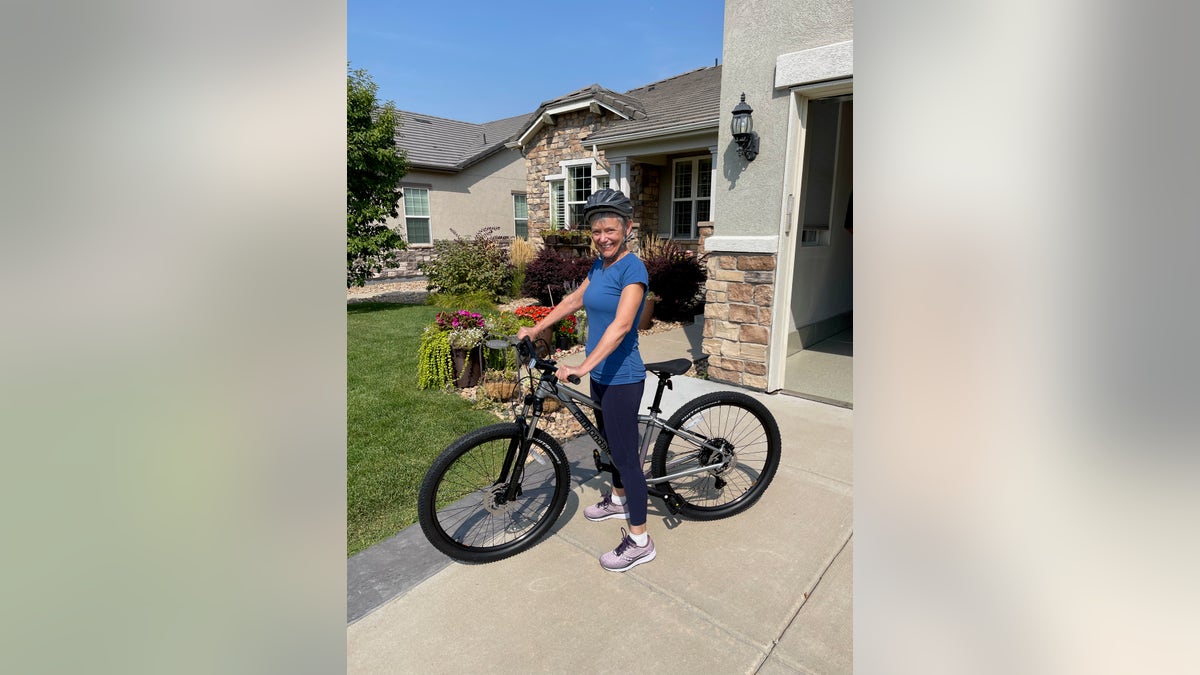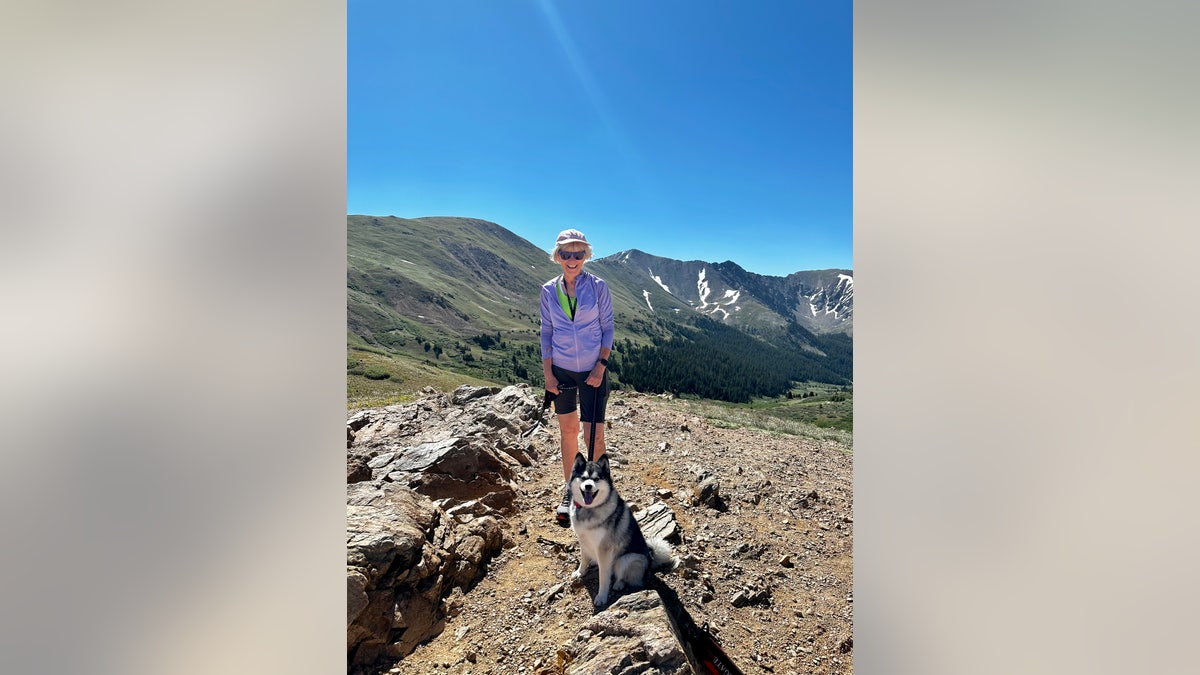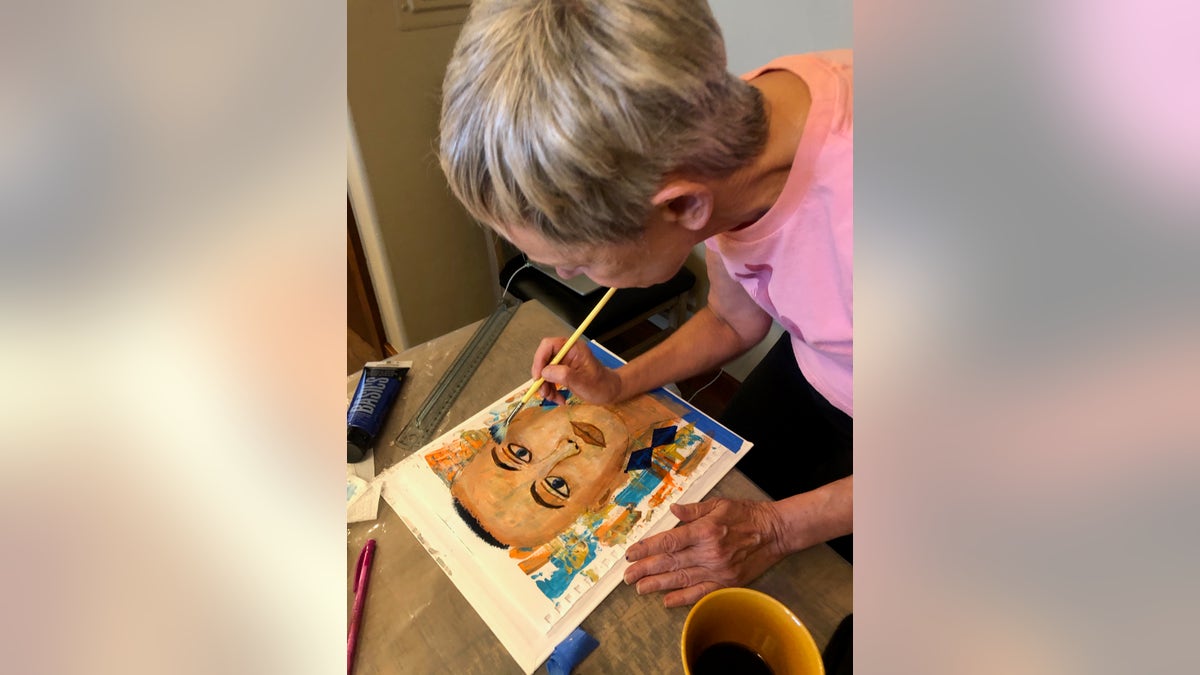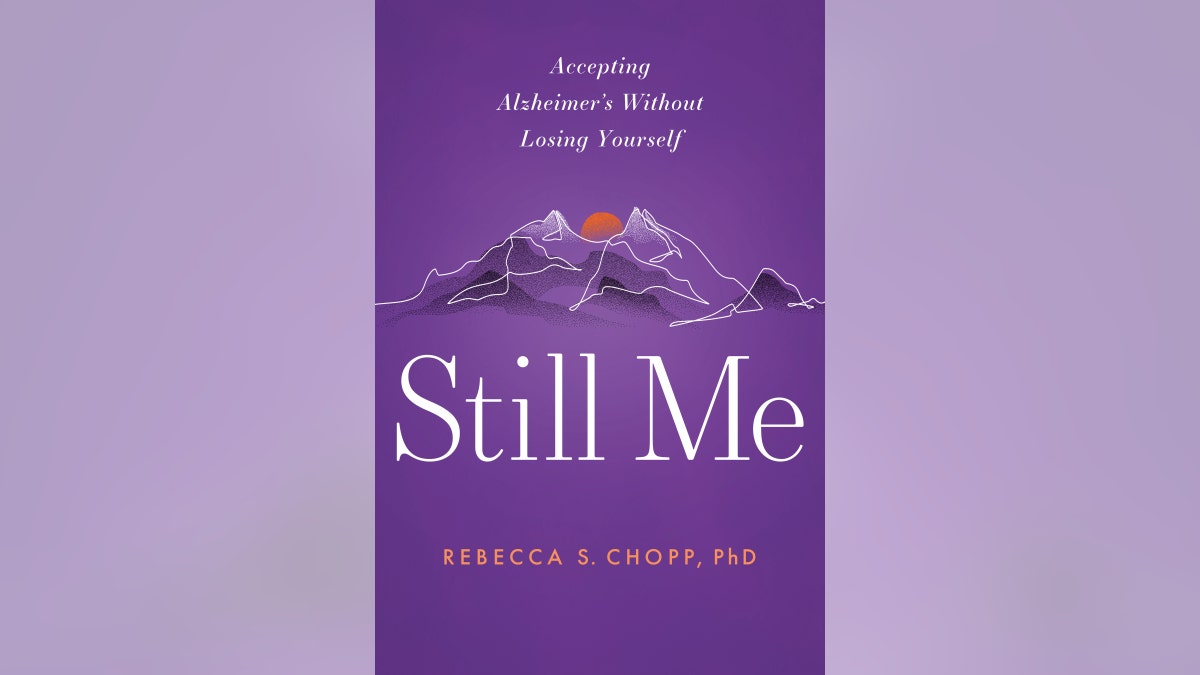Since her Alzheimer’s diagnosis in 2019, a Colorado woman has refused to give in to the disease — and after 4½ years, she is still mentally sharp and virtually symptom-free.
Dr. Rebecca Chopp, who is married with three sons, was 67 when she was diagnosed with mild cognitive impairment (MCI) due to Alzheimer’s disease.
At the time, Chopp thought everything was normal — other than the fact that she’d been sleeping more than usual.
Then, at her annual physician’s visit, she mentioned that she’d gotten lost on the way to her appointment, which prompted her doctor to run some tests.
ALZHEIMER’S RISK IS REDUCED AMONG WOMEN WHO FOLLOW THE DASH DIET IN THEIR 40S, STUDY FINDS
Ultimately, an MRI and a PET scan led to Chopp’s diagnosis.
“Now, I look back, and I realize there were signs that I wasn’t educated about, and I wasn’t paying attention until my very smart primary care physician put two and two together,” she told Fox News Digital in an interview via Zoom.
Among those missed signs was withdrawal from social activities, Chopp said.
“All of a sudden, I stopped wanting to go to all the galas and parties and dinners that came with my job,” she said, referring to her position as chancellor of the University of Denver. “I just kind of wanted to withdraw into myself.”
NEW DEMENTIA DRUG ‘HAS GIVEN ME HOPE’: ALZHEIMER’S PATIENTS REVEAL THEIR STORIES
She also had a little more trouble with work tasks, but initially chalked it up to getting older or being tired.
“About six out of 10 Americans, even when they see the signs, just don’t want to get that diagnosis because they think it will immediately lead to the last stage of the disease,” Chopp said.
At first, Chopp was devastated at the idea of leaving her distinguished academic career — and at the prospect of missing out on all the retirement activities she’d planned with her husband.

Chopp also had a mental picture of her mother and both grandmothers — all of whom died with Alzheimer’s after receiving late-stage diagnoses.
“So when she told me, my husband and I were devastated — it was just an abyss for us,” she recalled.
After Chopp’s initial shock and sadness, she said she faced another challenge when a neurologist provided little information or guidance.
ASK A DOC: ‘HOW CAN I REDUCE THE RISK OF ALZHEIMER’S DISEASE?’ HERE ARE 3 TIPS
“She told me that in three years, I would not be able to button my own shirts or feed myself,” Chopp recalled.
Then a second neurologist painted a brighter outlook. This neurologist told Chopp that in light of new research and lifestyle treatments, people with Alzheimer’s could live up to 20 years — and could slow down the progress of their symptoms.
That gave her the encouragement to take control of her disease and reclaim her life.

Lakelyn Hogan Eichenberger, PhD, a gerontologist and care advocate for Home Instead in Omaha, Nebraska, agreed that lifestyle choices are important for health in later life.
“While there is no one food that can reduce the risk, eating a well-balanced diet is important for reducing the risk of cognitive decline in later life,” she told Fox News Digital. “The DASH and Mediterranean diets have been shown to be most effective.”
ALZHEIMER’S RISK IS REDUCED AMONG WOMEN WHO FOLLOW THE DASH DIET IN THEIR 40S, STUDY FINDS
“In addition to diet, other important lifestyle factors include regular exercise, quality sleep, stress management, keeping your brain engaged, and maintaining social connections.”
Chopp shared with Fox News Digital what she calls the “four pillars” of her fight against Alzheimer’s.
1. Feeding the brain with optimal nutrition
Chopp follows the MIND diet, which is a hybrid of the Mediterranean and DASH diets.

Dr. Martha Clare Morris and colleagues at the Harvard Chan School of Public Health and Rush University Medical Center first introduced the diet in 2015 as a means of promoting brain health in older adults.
“It also includes additional blueberries, walnuts, lots of salmon, sardines, avocados — foods that we know are good for the brain,” Chopp told Fox News Digital.
THE 8 BIGGEST ALZHEIMER’S DISEASE MYTHS — AND THE TRUTHS BEHIND THEM
She also cut out processed foods, as they have been shown to trigger the inflammation in the brain that contributes to Alzheimer’s symptoms.
“I wish I’d known about the importance of diet when I was 40,” she said.
2. Moving to benefit the mind
Exercise has been proven to help prevent cognitive decline and slow the related symptoms.
“Exercise flushes the brain with good chemicals and literally creates a kind of protein that may grow that section of the brain where your memories are,” Chopp said.
“I began to realize that I could live with joy, that I could live well, that I could live in a state of abiding awe and have a great quality of life.”
Physical activity is a regular part of Chopp’s routine. It also provided the perfect excuse for her to get a puppy — which she’d wanted for 25 years.
“I walk with my dog, maybe an hour and a half a day, and I also do strength training,” she said.
Chopp also does kickboxing, ballet and yoga — activities that engage the brain and the body.

Exercise has also proven to be a great way to stimulate her creativity, said Chopp, who just finished writing a book about her Alzheimer’s journey.
“The only way I was able to write that with Alzheimer’s over the course of 11 months was to work on it for two hours each day after walking with my dog in the morning,” she said. “It was amazing how much better my concentration was.”
3. Living with joy and awe
One piece of advice from the second neurologist stuck with Chopp: It was to “live with joy.”
“Attitude is key in life,” she told Fox News Digital. “When you’re faced with this sort of devastating news, you kind of go into a dark underworld at first — but when I began to realize that I could live with joy, that I could live well, that I could live in a state of abiding awe and have a great quality of life, my attitude got a lot better.”
DEMENTIA’S STAGGERING FINANCIAL COST IS REVEALED IN NEW REPORT: IT’S ‘BANKRUPTING FAMILIES’
For many Alzheimer’s patients, Chopp said, the diagnosis leads them to “get grumpy” and withdraw socially.
Chopp urges them to follow her lead in refusing to surrender.
“For the most part, I live with joy,” she said. “I now have time to spend with my husband, who patiently put up with me working 14- to 16-hour days. I spend time with my family and friends.”

Chopp has also embraced advocacy efforts to support Alzheimer’s research and treatment, which has allowed her to meet many other people who are traveling the same journey.
As a member of the National Early-Stage Advisory Group, she works to help others live their best lives after an Alzheimer’s or dementia diagnosis.
“It has given me a tremendous sense of purpose,” Chopp said. “And I think we all know how comforting that is, to be encouraged, to cry with one another, to know you’re not alone.”
4. Embracing creativity
Since her diagnosis, Chopp has looked for ways to pursue creative endeavors to keep her brain sharp.
In addition to writing, she’s begun painting — something she never considered before.
“For a brain-healthy lifestyle, whether you worry about Alzheimer’s or not, you’ve got to tap into that creative side.”
“One of the things the second neurologist told me is that I needed to engage the other side of my brain, that I could form new neural pathways through creativity,” Chopp told Fox News Digital.
An artist friend took Chopp to the mountains and taught her to paint. Now, several years later, she is painting professional portraits.

“But it doesn’t matter how good you are — you can doodle, you can dance, you can garden, you can woodwork,” she said.
“For a brain-healthy lifestyle, whether you worry about Alzheimer’s or not, you’ve got to tap into that creative side.”
These days, Chopp’s doctors are “very pleased” with how her lifestyle interventions have slowed the progression of her disease.
“It’s really important to educate yourself about the disease and its progression. Get help and support from others and refuse to surrender.”
“The last time I was in the office, which was three weeks ago, the neurologists told me that I was pretty much the same as I was three or four years ago,” she said.
Chopp realizes that won’t always be the case — but what she’s doing is working, and she said she’s not the only one.
CLICK HERE TO SIGN UP FOR OUR HEALTH NEWSLETTER
“I have learned there is so much you can still do,” she said. “It’s really important to educate yourself about the disease and its progression. Get help and support from others and refuse to surrender.”
“Everybody and every brain is unique,” she told Fox News Digital. “But I think almost everyone will be able to delay the rapid progress of these symptoms through lifestyle and medical treatments.”
Chopp’s book, titled “Still Me: Accepting Alzheimer’s Without Losing Yourself,” from MFF Publishing (Morgridge Family Foundation), will be available via Amazon and other outlets in February, with pre-orders starting in November.
Before Chopp’s diagnosis, she was a widely published author and editor, an ordained minister and a well-known academic in the fields of education, philosophy, religion and feminism, according to the foundation.
Prior to her role as 18th chancellor of the University of Denver, she served in leadership positions at Swarthmore College, Colgate University, Emory University and Yale University.
For more Health articles, visit www.foxnews.com/health.
Read the full article here